What's the best drink for hydration for runners?
What's the best drink for hydration? Read our expert advice on how to avoid dehydration for runners
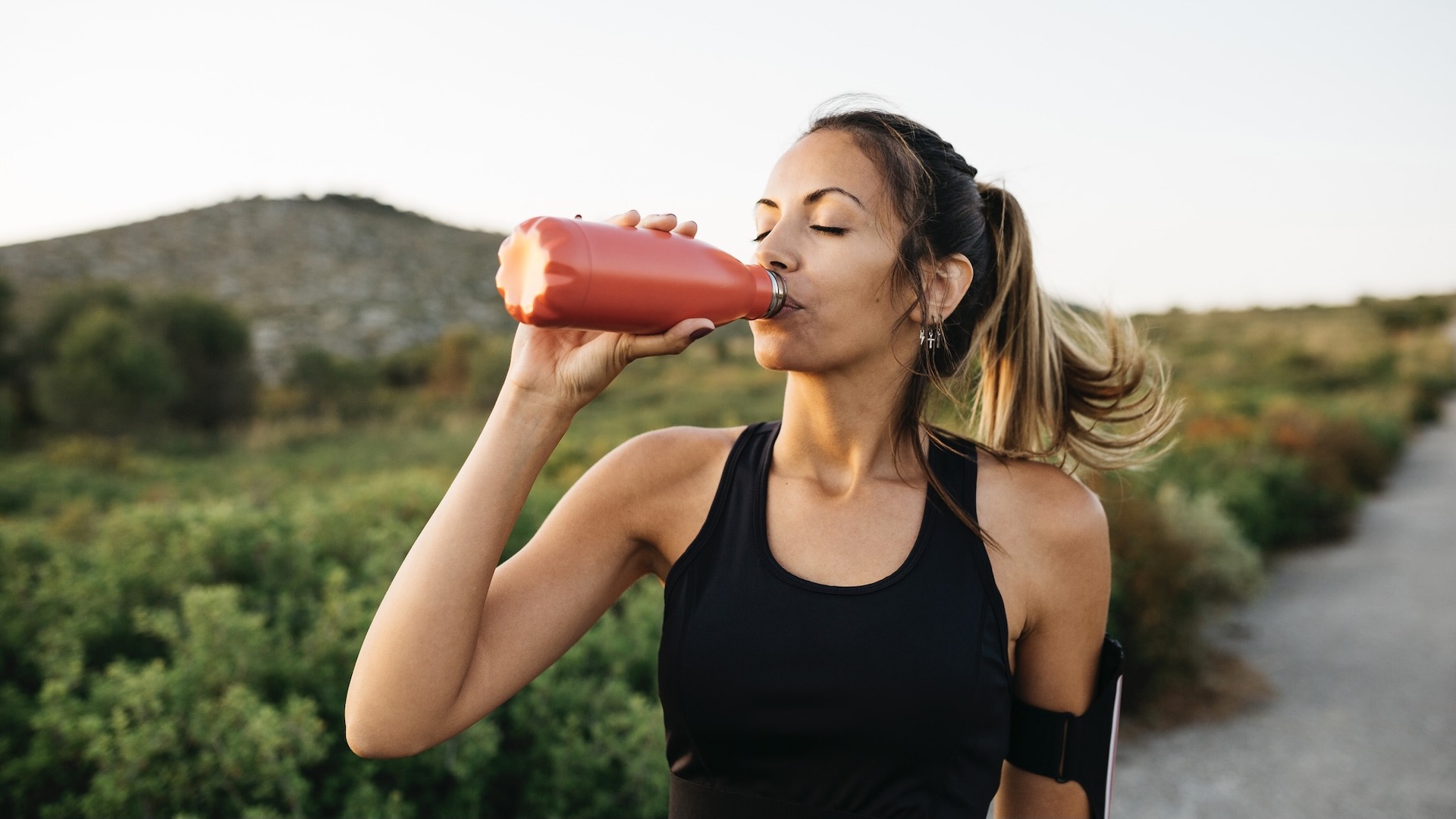
All the latest inspiration, tips and guides to help you plan your next Advnture!
You are now subscribed
Your newsletter sign-up was successful
We frequently hear the advice to avoid dehydration and to stay properly hydrated for good health and well-being, but what does this actually mean? Further still, if you are a runner, what is the best drink for hydration?
For this article, we ask the experts about how to properly hydrate when running and the best drink to carry in your hydration pack's bladder or water bottle to keep your energy and performance up on the trail or road.
Dehydration: what does it mean for runners?
When we exercise, the body sweats in order to regulate its core temperature. Heat evaporates with the sweat, which cools us down. This is the main reason we lose water when we exercise and especially during the warmer months.
Christian Allen, a Running Fitness expert and Product Trainer at Runners Need, further explains that both dry and humid conditions can put runners at greater risk of dehydration.
He says: “Humidity makes it harder for sweat to evaporate because the air is already saturated with moisture. If the air is dry, sweat evaporates quicker, causing you to lose water at a faster rate.
“Although severe dehydration is rare, for runners common symptoms can be fatigue, headaches, dizziness and decreased coordination. In more severe cases, dehydration can cause heat exhaustion and heatstroke.”

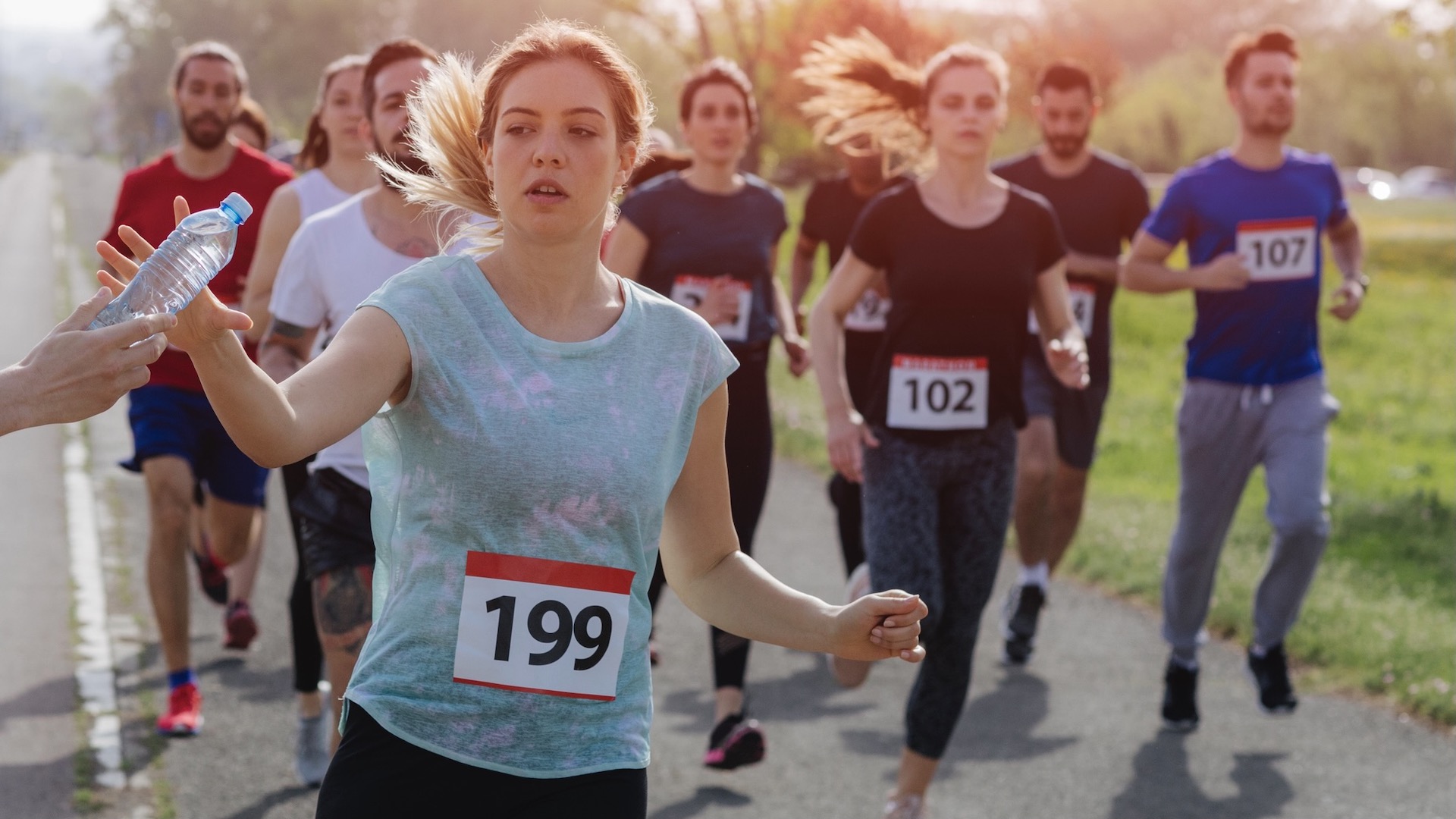
Runners: What is the right way to hydrate?
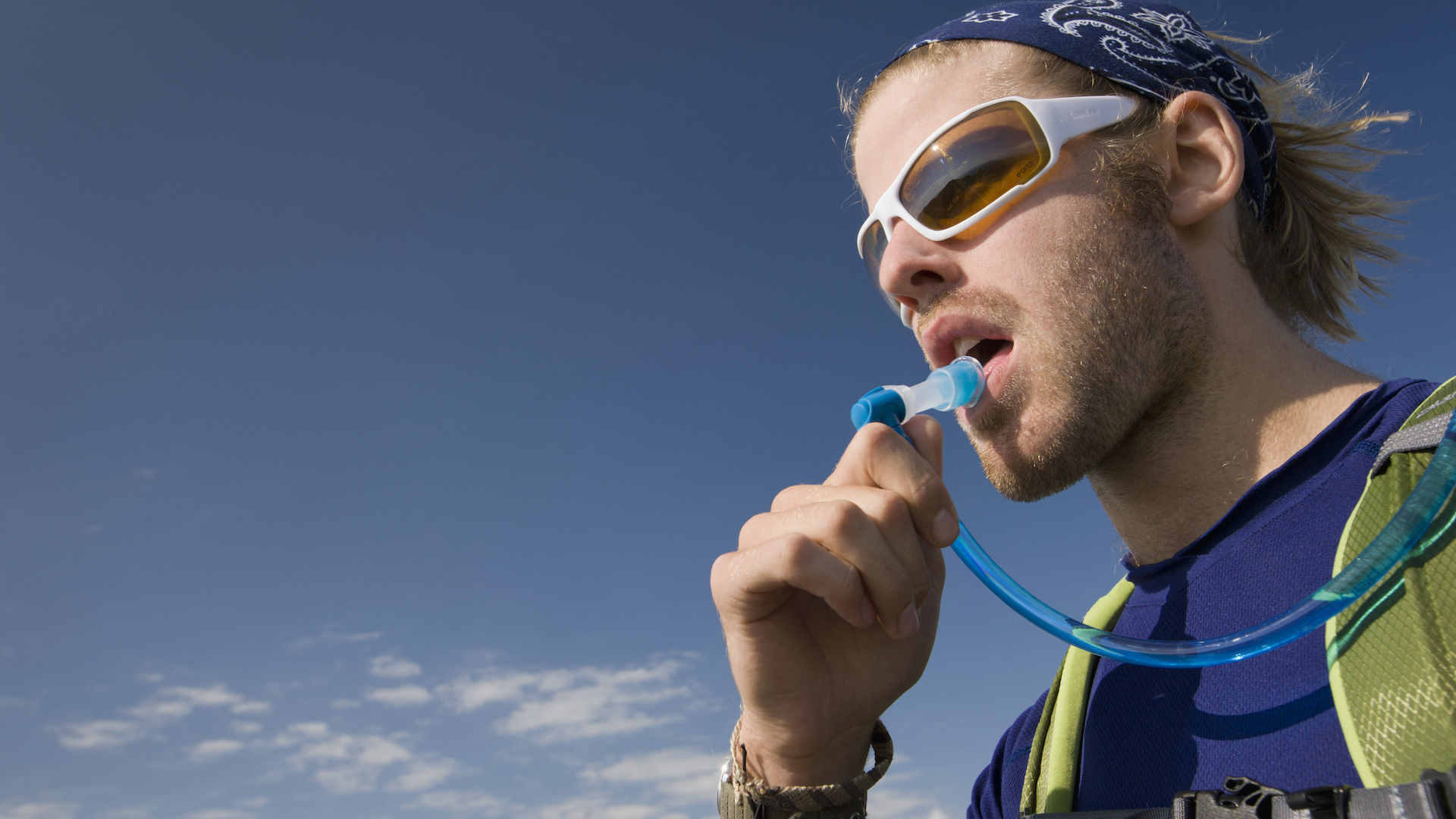
Knowing how much water we need to carry with us, or whether water or specialised sports drinks are better for hydration, is key to being better performance as a runner.
All the latest inspiration, tips and guides to help you plan your next Advnture!
Abby Coleman is a senior sports scientist with a focus on the right fuelling and hydration for athletes. She explains that there have generally been two camps when talking about hydration. The first is drinking water to replace fluids lost to sweat and the second is "drinking to thirst". The modern approach now looks more at the individual athlete and their specific hydration and fuelling requirement.
Coleman, who is part of a team of experts at Precision Fuel and Hydration, explains: “For many years, hydration for athletes was focused on replacing sweat loss with water. Basically, the aim was to prevent dehydration by taking on as much water as is lost in sweat.
“But the problem with this is that some athletes have the potential to end up drinking too much water, or becoming over-hydrated. They drink because they have been told to drink a certain amount and at certain intervals, rather than hydrating to suit their personal needs."

At the milder end of the scale, over-hydration will lead to discomfort, such as water sloshing around in the stomach or bloating, however there are far more dangerous consequences of drinking too much water, including, in extreme cases, exercise associated hyponatremia.
Coleman says: “When you drink too much water before, during or after exercise, your blood sodium concentration falls below normal because it becomes diluted. Sodium is an electrolyte, which helps to regulate the amount of water that's in and around your cells.
"When this happens, your body's water levels rise, and your cells begin to swell. The swelling can cause many issues leaving runners feeling nauseous or dizzy, but in some extreme cases it can cause the brain to swell and, for some runners, it can lead to a coma or death.”
Another hydration strategy for runners has commonly focused on the idea of runners drinking to thirst . Drinking to thirst requires runners to drink fluid whenever they feel thirsty and stop when they are not. Critics of this method claim that our thirst mechanism is a poor indicator of when we need to hydrate and that this can lead to lower performance levels due to under hydration.
Coleman says that when she is asked the common question of how much waterer or fluids to drink when running, her answer is: "It depends."
She adds: "Hydration is very personal and depends on how much you sweat, how far you are running, what the conditions are like and many other factors. That’s why it is important for athletes to create a personalised fuel and hydration plan."
What’s the best drink for hydration for runners?
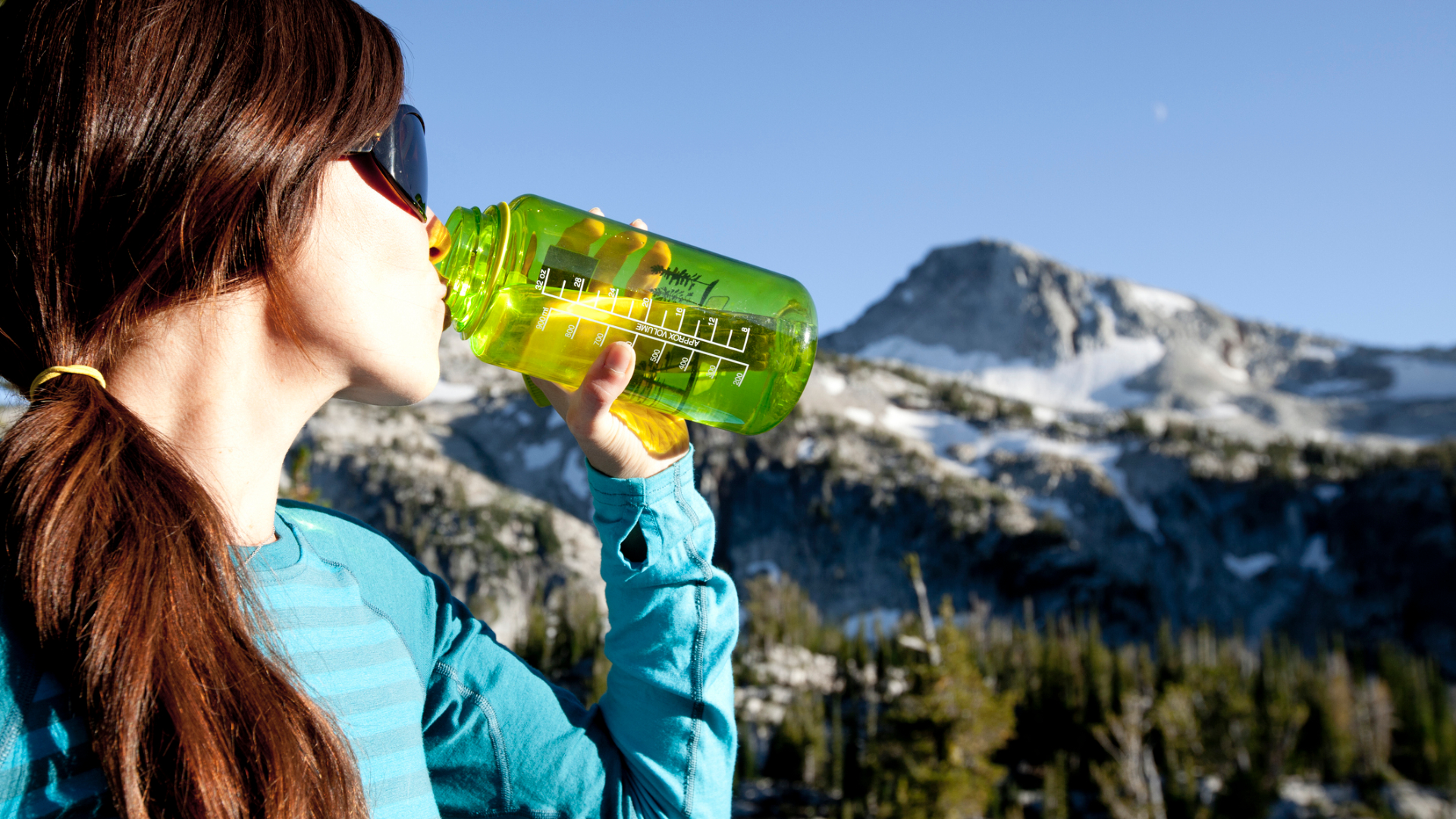
Pop into a sports store, look on the sports-focused shelves of supermarkets or do a search online and you’ll discover a vast range of products such as isotonic drinks that are claimed to offer better hydration for athletes.
Most of these sports hydration products include a long list of ingredients.
Coleman says: “The ingredients of sports drinks will usually include electrolytes such as magnesium, potassium and sodium, and most likely some form of carbohydrates, too. Plus water obviously.
“The most important electrolyte in terms of hydration for runners is sodium because this is what is mostly lost through sweating. But knowing how much sodium to replenish is difficult without individualised testing.
“Not only do we all sweat different amounts but the concentration of sodium in the sweat will vary from person to person, too.”
How to check your sweat loss
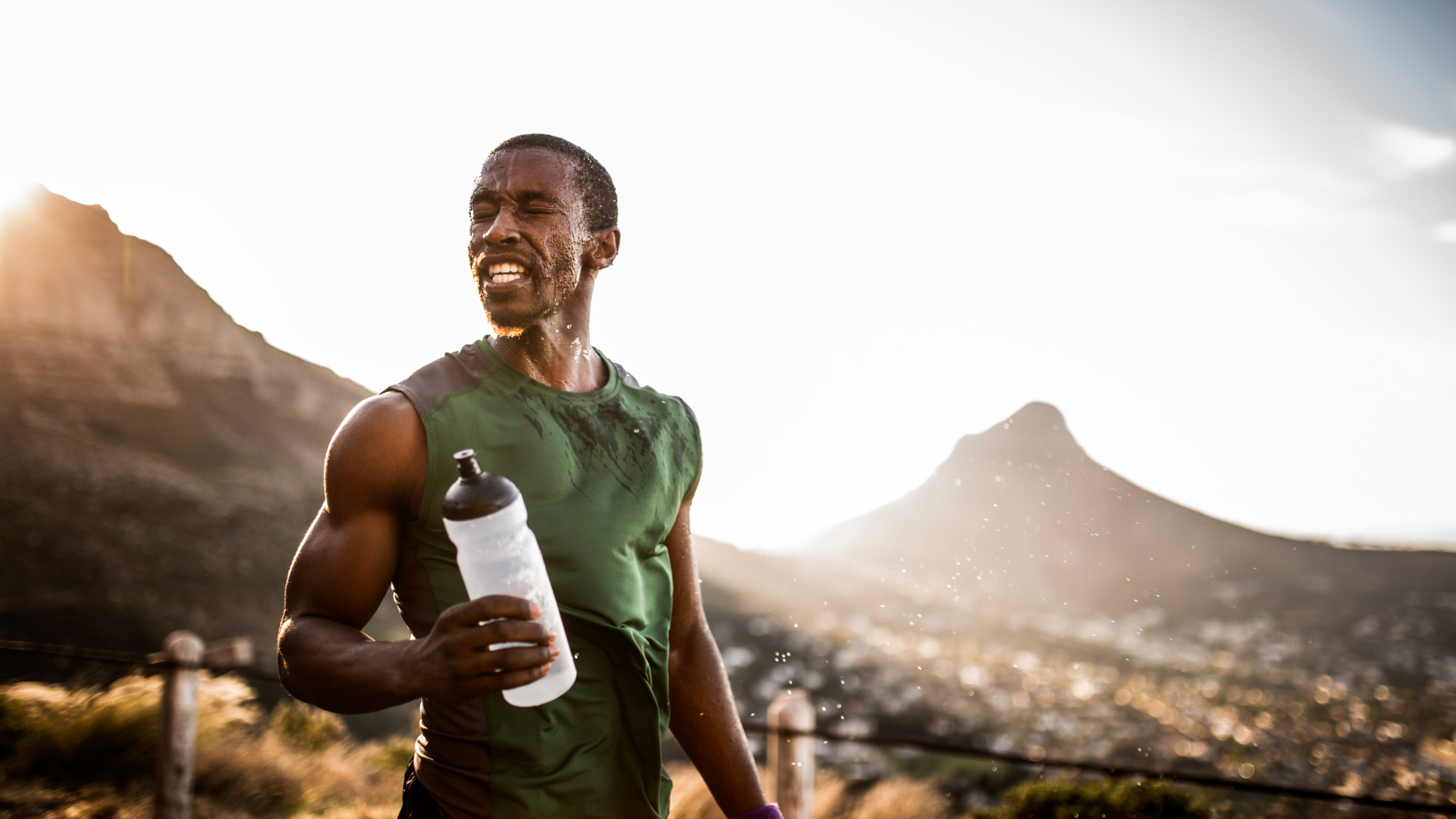
Although the method is not scientifically robust, it is possible to gain an idea of how much you sweat and whether you lose a lot of sodium / salt in the sweat.
Coleman says: “It is better if you can have a personalised sweat test carried out by an expert, but you can also do your own sweat test , even if quite basic, by asking yourself a few questions, such as do you see white sweat lines on your clothes after a run? This is usually more apparent when the sweat dries in.
“Also, do you end up with salt in your eyes from sweat dripping off your forehead and can you feel the grit of excess salt on your skin? If you experience any of these or all of them, the chances are you have higher sodium content in your sweat and need to replace this with the right electrolyte drinks.”
Water or a sports drink for hydration?
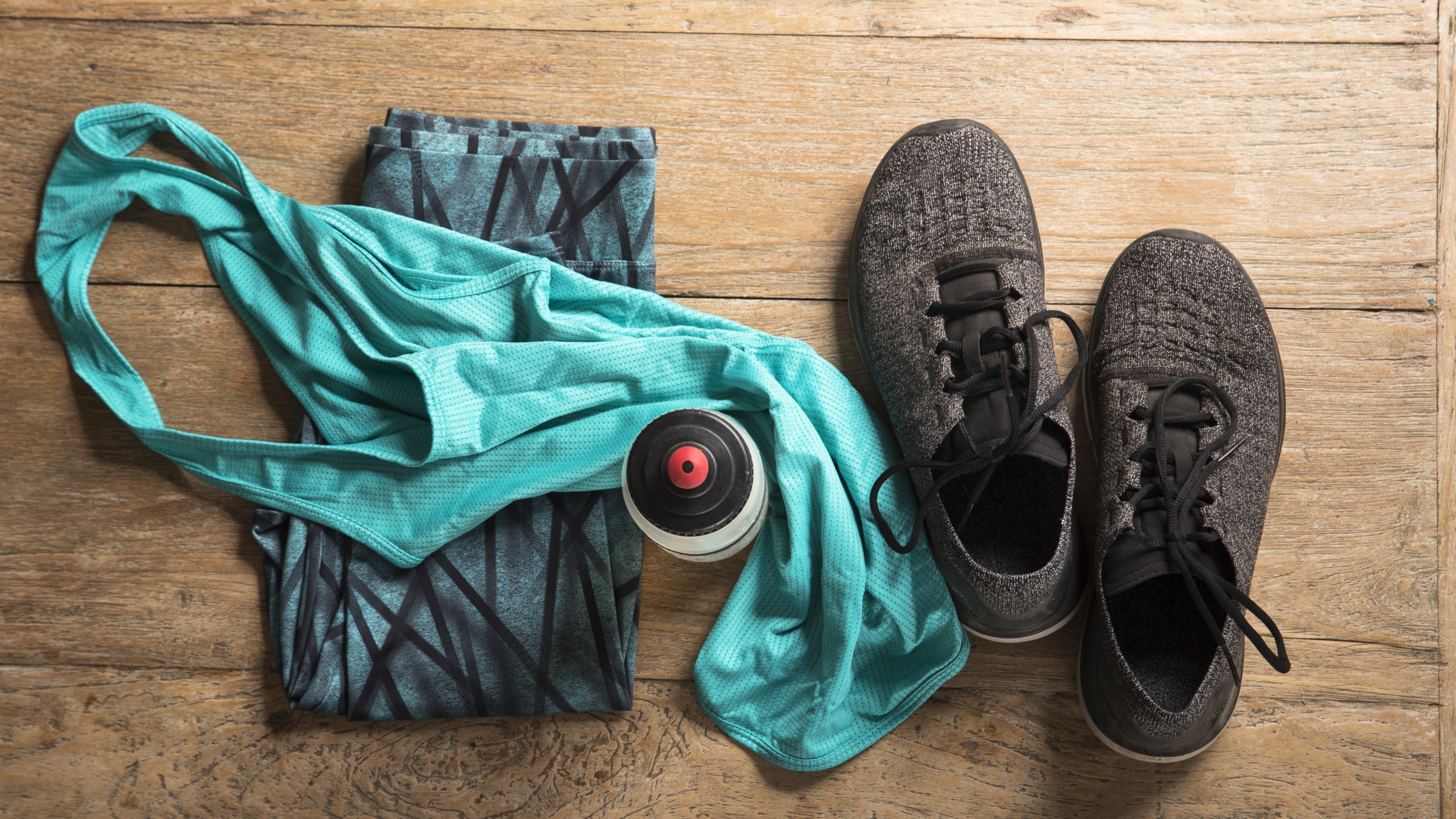
Coleman suggests a good rule of thumb for choosing between water only and drinks with additional electrolytes: “For most runners who are exercising at lower to moderate intensities of up to about 90 minutes in cool to moderately warm conditions, then water is most likely to be enough for re-hydration.
"It’s important not to drink too much water before exercise and it’s definitely not a good idea to force yourself to drink while out on a run, so mostly we talk about sipping water when you feel thirsty.
“What is more critical is when running for more than 90 minutes or when working at hard intensities or when the conditions are warm to hot and you are running for more than 60 minutes. Then the hydration plan needs to include replacement of the important electrolyte sodium.
“Again, the best way to get this right is to know how much you sweat and what is the concentration of sodium in your sweat. Once you know this you will be able to take on the right amount of fluids, including the right replacement of electrolytes.”
When runners are properly hydrated and the body has the right levels of electrolytes they are much more likely to perform at their best, without suffering issues such as fatigue, nausea, dizziness, and cramps.

Fiona Russell is a widely published adventure journalist and blogger, better known as Fiona Outdoors. She is based in Scotland and is an all-round outdoors enthusiast with favorite activities including trail running, mountain walking, mountain biking, road cycling, triathlon and skiing (both downhill and backcountry). Aside from her own adventures, Fiona's biggest aim is to inspire others to enjoy getting outside and exploring, especially through her writing. She is also rarely seen without a running skort! Find out more at Fiona Outdoors.
